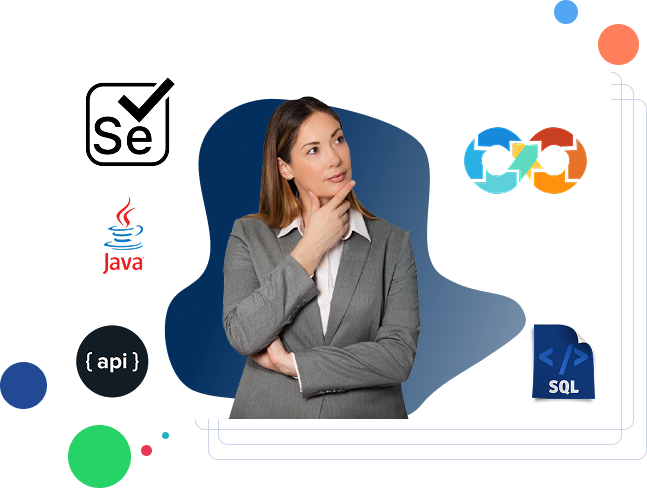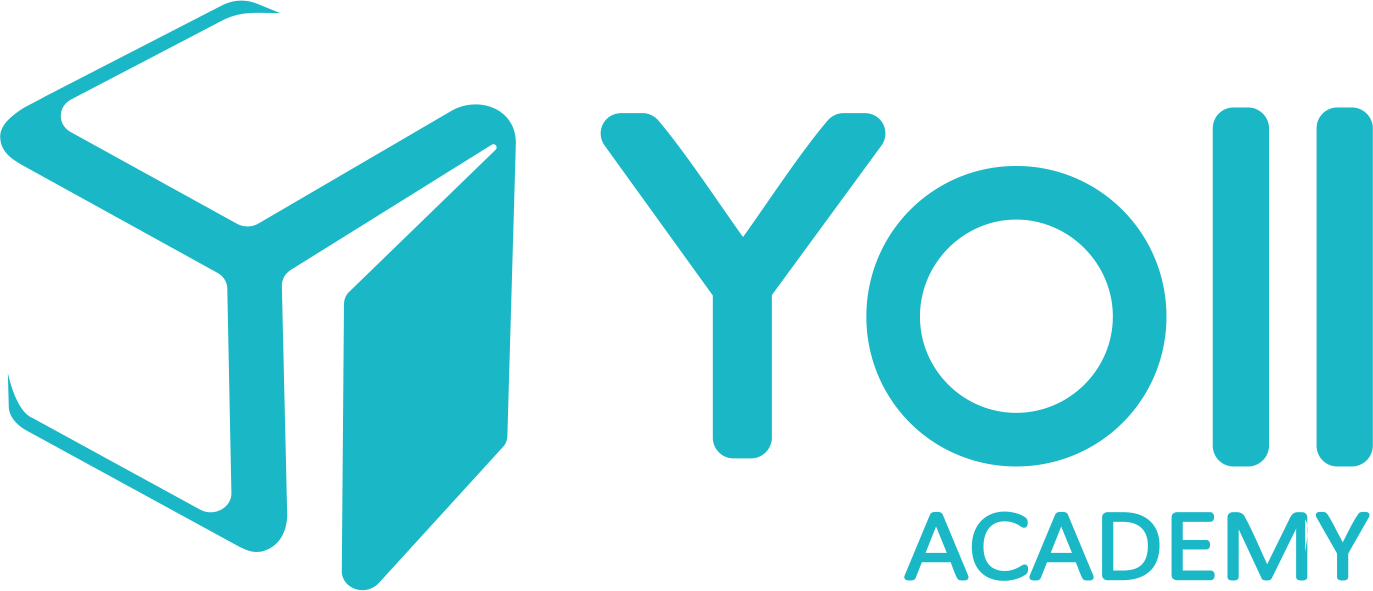
SDET Essentials
Perfect for beginners eager to dive into Software Development Engineer in Test (SDET) roles. Learn to build test automation frameworks, write efficient test scripts, and integrate testing into CI/CD pipelines
Why SDET Essentials?
Why Choose Us Over Other Platforms?
Alumni Success
Join a community of learners who have successfully transitioned into exciting careers with our programs.
Comprehensive Curriculum
Our Essentials course covers the core foundations of AI and Machine Learning, while our full program takes you deeper with hands-on projects and advanced topics.
SCHEV Certified
Our programs are SCHEV-certified, ensuring you receive high-quality, state-approved IT training.
Real-World Focus
Learn practical applications of AI and Machine Learning that align with industry demands and prepare you for real-world challenges.
Flexible Learning Options
Start with our free, self-paced course and transition to our live, mentor-led program when you're ready to advance further.
Companies Our Alunmi work At







Program Overview
What You’ll Learn
Fundamentals & Core Testing Skills
Advanced Concepts & Industry Practices
Frequently asked questions
An SDET (Software Development Engineer in Test) is a specialized role that combines software development and testing. Unlike a QA Engineer, who primarily focuses on manual testing and identifying defects, an SDET is responsible for writing test automation scripts, developing testing frameworks, and integrating automated testing into CI/CD pipelines. SDETs work closely with developers to improve software quality through continuous testing and automation.
SDETs typically use programming languages such as Java, Python, or JavaScript. Java is widely used in automation frameworks like Selenium and Appium, while Python is preferred for its simplicity and usage in tools like PyTest and Robot Framework. JavaScript or TypeScript is commonly used for front-end automation testing with tools like Cypress and Playwright. Choosing the right language depends on the tools and frameworks used in your organization.
SDETs rely on a variety of tools to automate different aspects of testing. For web automation, Selenium, Cypress, and Playwright are widely used. Mobile automation is handled using Appium, while API testing is performed using tools like Postman and RestAssured. Performance and load testing are done with JMeter and Gatling, and CI/CD integration for continuous testing is achieved using Jenkins and GitHub Actions. The right combination of tools depends on the specific testing requirements of a project.
Yes, coding skills are essential for an SDET role. While you don’t need to be at the same level as a software developer, understanding programming concepts, writing test scripts, and debugging code are crucial for automation testing. Basic knowledge of object-oriented programming, data structures, and algorithms will help in creating robust and scalable test automation frameworks.
SDET is a highly in-demand career with excellent growth opportunities. With the increasing shift towards automation testing, companies are looking for professionals who can integrate testing into the software development lifecycle. The average salary for an SDET ranges from $90,000 to $120,000 or more, depending on experience and location. Additionally, SDETs can advance into roles such as Automation Architect, DevOps Engineer, or even Software Engineer, making it a rewarding and future-proof career path.


